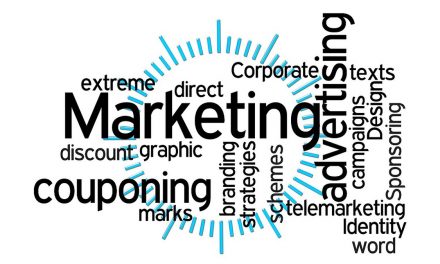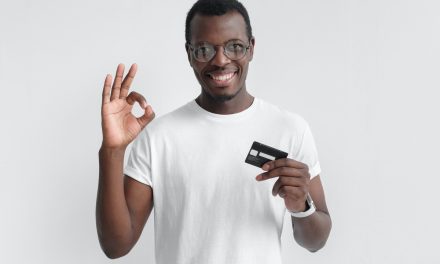So why will smart marketeers no longer bother building them?
For the last 2 decades we’ve been told that websites are your shop window to the world, and, in that time, a whole industry employing millions of people worldwide has been created in just this one field; your digital and online presence.
Yet within 5 years, I predict that smart marketeers will move from conventional web-based marketing into very specific, targeted, nowhere to browse, direct response marketing.
Whilst this may seem new to you, to me it seems as obvious as blue sky in the Caribbean.
The interesting thing, and this absolutely amazes me, is that it’s taken this long to become a reality, in fact, right from day one, things should have been structured this way.
“Why?” I hear you ask. Well that’s because, that’s the way the internet was built.
That’s the way the code works.
The internet does not store websites as a whole in its index, but rather just the ‘pages’. Each page is judged and scored on its own with regard to relevancy and the advertising attached, by the same relevancy to itself, not to the pages that surround it.
So, while the masses bang out complex websites hoping to draw the prospect into a woven web of related pages and content, the smart marketeer of the future will not waste time with decoy activities, but instead direct the prospect to only the pages that relate to their search and that specific niche interest.
Seems kind of obvious when you think about it, but hell that’s not what web developers are trying to sell you.
As ad spend goes up and the top search platforms like Google and Facebook restrict advertisers further, it will fast become survival of the fittest.
For example:
If you sell shoes, you will no longer be able to market yourself effectively as a general shoe salesman. Instead you will spend your time creating your own long trail of keyword algorithms to accurately match the prospect enquiry, not with a website, but with a landing page.
The more relevant the landing page is to the subject, the more easily you are able to create the sale, the less time the consumer has to browse, the better.
Think of what happens when you search Amazon or EBay: specific product information on one page. The problem of course for the seller on those platforms is that the prospect is also getting delivery of all your competitors’ too, so it becomes more of a price war than an ideal opportunity.
There the opportunity to premium price hardly exists, although I am in the process of testing the 10x theory here. I guess my thoughts are, that if your product is 10x the cost of the average then it’s going to get noticed.
So, instead of general marketing to a website on the whole, you’ll need to employ stealth.
And instead of your key word being, ‘Butcher in Bewdley’ to get generalised enquiries, the consumer of tomorrow will want accuracy and speed of delivery; looking for a specific product rather than a browse. Which means: we can’t mess about dragging them through unrelated or unwanted products searching for that one thing they’re looking for.
No, the consumer of the future will expect to find the product immediately and he who dares to buck the trend will win.
To give you an example to prove the point:
You could set up a website relating to shoes.
Your prospect, unqualified, will land on the site and then start a search for her preferred style of shoes:
‘6 inch platforms in yellow patent, crocodile leather’.
Ok.
Here’s the point: if you set up the page ‘shoes, patent crocodile, 6 inch platform, yellow, size 6’, Google will index it as such.
And if you create an advert for that specific phrase, as long as that’s what people are looking for, it’s not going to cost as much as an ad for ‘high heel leather shoes’.
But, because it’s so specific, someone looking for the same shoe in a size 7 won’t get the ad.
However, you are going to have to be even smarter than that. In today’s market the attention span and memory of your average customer could be compared to a fish; 5 seconds or less, a bit like Dory in the Nemo movie.
So, the smart marketeer of the future is going to have to find ways of teasing the email address out of the contact on the landing page. If you can’t get the email address after they have clicked on your page, then you are missing the second biggest trick that the smart marketeer will be employing: control of information to the prospect when you want it delivered, not when the customer is looking for it. Yup guys, I’m talking re-engagement. The landing page is just the first step in improving your marketing prowess.
So, start thinking about your top 20% of products.
Think of what the key words are in relation to those items and then start building landing pages for each of them.
Or
Think of a product group and build a product group landing page so that you can then start educating the customer on this niche.
Ok, maybe I need to explain a bit further:
Let’s take my products – Bushman Wood Fired Ovens.
My market has been divided into 3 markets:
Mobile – people wanting to start catering businesses.
Commercial – ovens for the restaurant, pub and takeaway industries.
Domestic – ovens for home gardens.
Rather than sending someone looking for a wood fired oven to a general website page where you now have to choose from a menu, if they search for ‘mobile wood fired oven’ or ‘commercial wood fired oven’, or ‘wood fired oven for the garden’, they’ll go to different landing pages from the ad that Google will display.
Keep in mind that this is completely different from the experience they’ll have if they do a search for ‘Bushman wood fired ovens’. If they search for me by name then they already know what they are looking for in relation to product. So, an organic search will get them right to my page with no competition, but with the first examples, they’ll get ad listings from several other companies competing with me in this market sector.
The ad should then repeat the phrase they are looking for, so that it’s congruent, the landing page should only be about the subject you said it would be about.
Most marketeers and business owners do not understand the importance of getting an email address, or why repeat and constant contact is important, so if that’s you, let me see if I can help:
It’s been proven that only 16% of people who are looking for something specific are actually primed and ready to buy at that particular moment. Just 16%.
There’s another 30% that is primed but not ready to buy, they could come back in up to 3 months’ time.
A small percentage is looking further ahead; 3-12months,
Plus, another small percentage is just searching; neither ready, nor primed.
From this it’s clear to see that if you are not getting email addresses, you are literally leaving at least 50% of your prospects out in the cold. Yes, some of them will come back to you irrespective, but your closing will definitely go up if you are at the forefront of that moment, that point, that they decide they are ready to buy.
You are, however, going to have to offer a BRIBE of some kind to get that email address and now, with the onset of GDPR requirements, it’s going to be harder to get that information and deliver over a long time-span.
However, this is good news to the smart marketeers. Simply because, having successfully coaxed an email address, they will then drive to get a postal address and then move their marketing offline, where GDPR is not as restrictive, with the understanding that not driving to email and/or postal address, 72% of your advertising budget is merely wasted, whereas if you can get that contact information, you can and will significantly increase your Marketing ROI.





